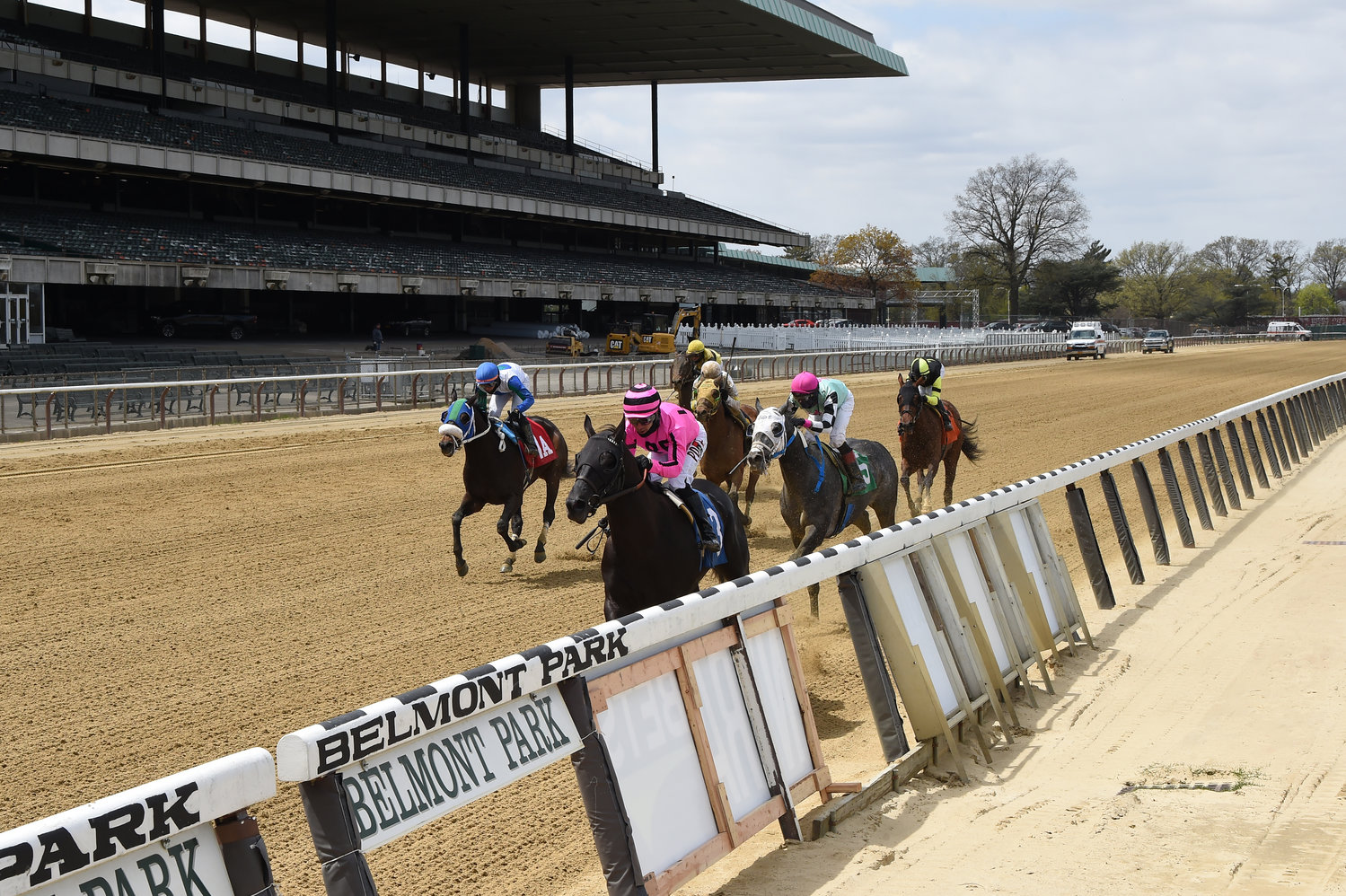Belmont Park community advisory board appointee process moves forward
Editor's Note: This story has been updated since its publication on March 30. All appointments to the board have been made and a private meeting of the Belmont Park Local Advisory Board is scheduled for Wednesday, April 5.
The New York Racing Association’s proposed modernization plan for the Belmont Park racetrack looked as if it had the potential to being approved as the April 1 state budget deadline approached.
Gov. Kathy Hochul recently unveiled her $227 billion budget proposal for fiscal year 2024, in which she pledged support for the racetrack’s multi-year, $455 million renovation project. According to NYRA President David O’Rourke, Hochul’s support demonstrated her understanding of the important role horse racing plays in New York’s economy.
Uncertainty remained, however, over the creation of a local advisory board and the installation of its members. “There has been obviously a substantial delay,” said Patrick McKenna, a spokesman for NYRA. “We hope to have all of these appointments made as quickly as possible.”
Solages said after the bill passed that the responsibility for appointing 15 advisory board members fell to elected officials of communities in Nassau County, Queens, the Town of Hempstead and NYRA. The county executive would choose five designees, four of whom must be Elmont residents. The Hempstead town supervisor would choose two more Elmont residents, NYRA would appoint three members, the Village of Floral Park would appoint two, one would be appointed by the village of South Floral Park, and two more would be chosen by Queens Community Board 13.
At the time, then County Executive Laura Curran made her choices, Solages said. But after the coronavirus pandemic began and Bruce Blakeman replaced Curran, the appointment process was halted, and none of Curran’s choices were made official.
McKenna said that although the legislation does not require a local committee, NYRA strongly supported the creation of one. As of now, all nominations have been appointed to the board and the first meeting is scheduled for April 6, McKenna said.
McKenna said NYRA appointed three senior leaders weeks after the legislation was signed into law including NYRA president David O’Rourke and Executive Vice President for Operations Glen Kozak, who lives in Floral Park and is responsible for capital projects at all NYRA properties.
The goal of the board is to ensure local community members have direct access to information about Belmont Park. McKenna said the meetings are not open to the public, but there will be opportunities for the broader community to participate in listening sessions, town hall meetings and other venues.
“We have held dozens of meetings with community members, with elected officials and community groups for more than a year to communicate our vision for a new Belmont Park,” he said. “That’s why this project enjoys such wide support from local elected officials, Long Islanders in general, Governor Hochul — and now both houses of the Legislature support this transformational economic development opportunity for Long Island.”
NYRA has proposed demolishing Belmont Park, rebuilding it from scratch and transforming the racetrack into a winterized facility complete with a new clubhouse and grandstand — all at no cost to taxpayers. The association plans to borrow the money from the state and pay it back over 30 years through state-backed bonds.
But some advocacy groups, such as Reinvent Albany, say they believe the plan is unrealistic, given the horse racing industry’s history of financial struggles.
State Comptroller Thomas DiNapoli expressed his concerns about the use of state debt for economic development projects in his fiscal year 2023-24 Executive Budget report. In the document, he stated that he believed NYRA’s proposal for Belmont Park deserves “further scrutiny.”
Elizabeth Marcello, a senior research analyst for Reinvent Albany, focuses on serving as a watchdog of economic development at the state level. Citing an Albany Times Union special report on the horse racing industry, Marcello said that the state had provided roughly $2.9 billion in subsidies for racing since 2008.
It is concerning, she added, that the industry “can’t survive without taxpayer dollars.”
“The reality is that the industry is failing,” Marcello said. “And there’s no reason why taxpayer dollars should be propping up this outdated industry.”
In spite of the opposition to the project, Solages and McKenna agreed that describing horse racing as a dying industry is a “mischaracterization.”
“Horse racing is not dying,” Solages said. “When I go to Belmont, I see people enjoying the experience. I also see younger fans. With every industry, you’ve got to modernize it.”
McKenna added that the new Belmont Park would be a reflection of the sport’s evolution. “We are confident,” he said, “that a revitalized and reimagined facility will remind so many sports fans about what a special experience it is to be at Belmont Park.”






